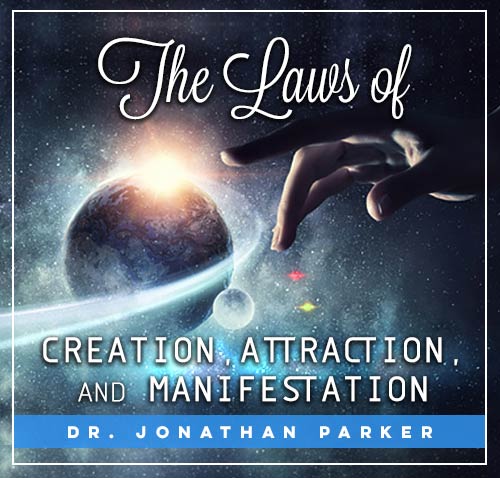What is an example of metaphysics?

Before diving in, please note: This post is for informational purposes only. If you’d like to know more about how we approach topics, feel free to check out our friendly Disclaimer Page.
Hey there, amazing readers! 🖐️ Just a quick note: yes, we know there are a lot of ads here. Trust us, we get it—it’s not the prettiest look, but they help us keep this blog alive and kicking. Those pesky little ads cover the costs of all the behind-the-scenes magic, from hosting and tech stuff to creating content we hope you’ll love.
We’re committed to delivering quality posts, and your support (even just sticking around despite the ads) means everything to us. So, bear with us, and thanks for helping us keep the good vibes rolling. Now, on to the fun stuff! 😉
TRANSLATE BUTTON AT THE END OF THE ARTICLE
Overview
Metaphysics is a branch of philosophy that explores fundamental questions about the nature of reality, existence, and the relationship between mind and matter.
It goes beyond the physical world and delves into abstract concepts and principles that shape our understanding of reality.
While metaphysics can be complex and abstract, it has practical implications in our everyday lives and plays a significant role in shaping our perception of the world around us.
In this article, we will delve into the basics of metaphysics, explore its concepts, provide examples of metaphysics in everyday life, examine a concrete example, and discuss how metaphysics shapes our perception of reality.
What is Metaphysics?
Metaphysics is a branch of philosophy that deals with the fundamental nature of reality and existence.
It explores questions about the nature of being, knowledge, time, space, causality, identity, and more.
The term "metaphysics" was coined by the ancient Greek philosopher Aristotle, who used it to refer to the topics that came after his discussions on physics in his works.
However, the subject matter of metaphysics has evolved over time and encompasses a wide range of philosophical inquiries.
Understanding the Basics of Metaphysics
To understand metaphysics, it is important to grasp its basic concepts.
One central concept is the distinction between the physical and the metaphysical.
While the physical world consists of tangible objects and observable phenomena, the metaphysical realm deals with abstract concepts, such as consciousness, existence, and the nature of reality itself.
Another key concept in metaphysics is ontology, which is the study of being and existence.
Ontology explores what it means to exist, the nature of reality, and the fundamental categories of existence.
It seeks to understand the nature of objects, properties, and relationships, and how they relate to one another.
Epistemology is another branch of metaphysics that focuses on knowledge and how we acquire it.
It asks questions about the nature of knowledge, truth, belief, and justification.
Epistemology explores concepts such as perception, reasoning, intuition, and the limits of human knowledge.
Exploring the Concept of Metaphysics
Metaphysics explores a wide range of philosophical questions and concepts.
It delves into topics such as determinism and free will, the mind-body problem, the nature of consciousness, the existence of God, the nature of time, and the nature of causality.
Determinism and free will, for example, are concepts that have been debated in metaphysics for centuries.
Determinism argues that every event, including human actions, is determined by previous events and natural laws, leaving no room for free will.
On the other hand, proponents of free will argue that individuals have the ability to make choices that are not predetermined by external factors.
The mind-body problem is another intriguing concept in metaphysics.
It explores the relationship between the mind and the body, questioning whether the mind and consciousness are purely physical phenomena or if there is a separate non-physical aspect to them.
Examples of Metaphysics in Everyday Life
Metaphysics may seem abstract, but its concepts and principles influence our everyday lives more than we may realize.
Consider the concept of time, for instance.
Time is a fundamental aspect of our existence, and our perception of time shapes how we experience the world.
Metaphysics explores questions about the nature of time, whether it is linear or cyclical, and how it relates to our subjective experience.
Another example is our understanding of personal identity.
Metaphysics questions what it means to be an individual and examines the nature of personal identity.
It raises questions about the persistence of personal identity over time and whether it is tied to the body or the mind.
Explore the Path to Spirituality and Enlightenment – Start Here.
Additionally, metaphysics plays a role in shaping our beliefs about the nature of reality and existence.
Concepts such as the existence of God, the nature of consciousness, and the nature of causality have metaphysical underpinnings that influence our worldview and beliefs.
Examining a Concrete Example of Metaphysics
To delve into a concrete example of metaphysics, let’s consider the concept of causality.
Causality is the idea that every event has a cause, and every cause produces an effect.
Metaphysics explores the nature of causality, raising questions about whether there are underlying principles or laws that govern causation.
One example of metaphysics in relation to causality is the philosophical concept of determinism.
Determinism argues that every event is determined by prior causes and natural laws, implying that the future is determined by the past.
This concept has profound implications for our understanding of free will and the nature of human actions.
On the other hand, metaphysics also considers alternative views, such as indeterminism, which posits that certain events may not have a specific cause or that some events may be genuinely random.
These differing perspectives on causality highlight the complexities and ongoing debates within metaphysics.
How Metaphysics Shapes our Perception of Reality
Metaphysics plays a significant role in shaping our perception of reality.
Our beliefs about the nature of reality, existence, and the mind-body relationship are influenced by metaphysical concepts and principles.
For example, if one adheres to a materialistic metaphysical worldview, they may believe that only physical matter exists and that consciousness is merely a byproduct of neural activity in the brain.
Conversely, proponents of dualism argue that the mind and body are separate entities, with consciousness existing independently of the physical body.
Metaphysics also shapes our perception of causality and determinism.
Believing in a deterministic worldview can lead one to view events as predetermined and human actions as products of external influences.
On the other hand, embracing indeterminism can lead to a belief in the existence of chance and the possibility of free will.
In conclusion, metaphysics is a branch of philosophy that explores fundamental questions about the nature of reality, existence, and the relationship between mind and matter.
It encompasses a wide range of concepts and principles that have practical implications in our everyday lives.
Metaphysics influences our understanding of time, personal identity, and the nature of reality.
By examining concrete examples such as causality and exploring different perspectives, we gain insight into the complexities of metaphysics and how it shapes our perception of the world around us.

The Enlightenment Journey is a remarkable collection of writings authored by a distinguished group of experts in the fields of spirituality, new age, and esoteric knowledge.
This anthology features a diverse assembly of well-experienced authors who bring their profound insights and credible perspectives to the forefront.
Each contributor possesses a wealth of knowledge and wisdom, making them authorities in their respective domains.
Together, they offer readers a transformative journey into the realms of spiritual growth, self-discovery, and esoteric enlightenment.
The Enlightenment Journey is a testament to the collective expertise of these luminaries, providing readers with a rich tapestry of ideas and information to illuminate their spiritual path.
Our Diverse Expertise 🌟
While our primary focus is on spirituality and esotericism, we are equally passionate about exploring a wide range of other topics and niches 🌍📚. Our experienced team is dedicated to delivering high-quality, informative content across various subjects ✨.
To ensure we provide the most accurate and valuable insights, we collaborate with trusted experts in their respective domains 🧑🏫👩🏫. This allows us to offer well-rounded perspectives and knowledge to our readers.
Our blog originally focused on spirituality and metaphysics, but we’ve since expanded to cover a wide range of niches. Don’t worry—we continue to publish a lot of articles on spirituality! Frequently visit our blog to explore our diverse content and stay tuned for more insightful reads.









